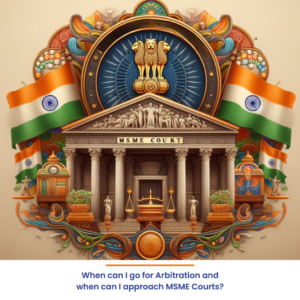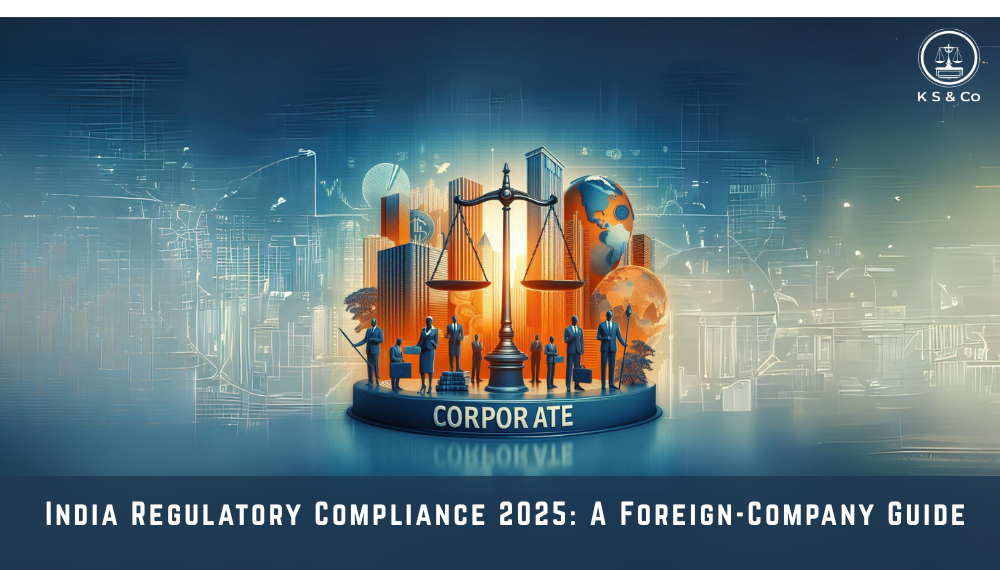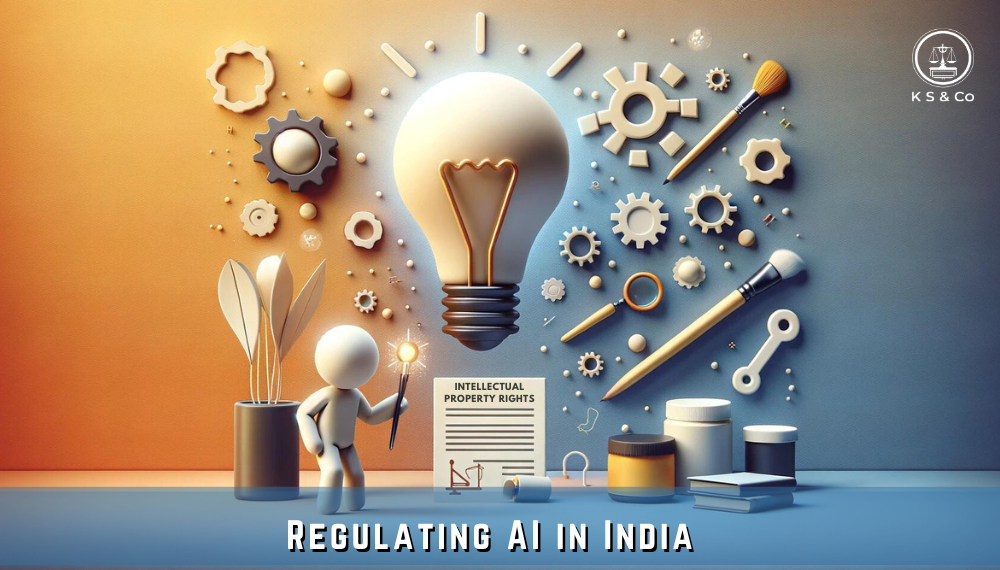The legislative intent while drafting the Arbitration and Conciliation Act, 1996, was to narrow the ambit of the Courts while considering appeals from arbitration awards. Nevertheless, one has seen that through various precedents, the scope of the Courts has widened with respect to challenge to an arbitration award. There are several discussions around the jurisdiction of the Courts with respect to Arbitration within the legal fraternity. In the past few months, the Courts have tackled some very interesting arbitration tribunal awards and taken a very intriguing stance on various grey areas of law which we have covered in this months Arbitration Newsletter.
Can an Arbitration Tribunal award damages, even though the contract between the parties restricts such damages?

Ruling – Yes. In case of MBL Infrastructure Limited vs. Delhi Metro Rail Corporation,
the Hon’ble Delhi High Court has held that clauses which restrict the right of a party to claim damages are restrictive and defeat the purpose of the sections 55 and 73 of the Indian Contract Act, 1872 (“Contract Act”) which entitle an aggrieved party to claim damages.
Furthermore, as per Section 23 of the Contract Act, such clauses are opposed to public policy as they aim at restraining the aggrieved party from claiming damages.
FACTS:
- The case involves a dispute between the Petitioner, MBL Infrastructure Ltd., a public limited company engaged in civil engineering projects and Respondent, Delhi Metro Rail Corporation (DMRC), a joint venture of the Government of NCT of Delhi and the Government of India, and a registered company under the Companies Act.
- The Respondent invited tenders for the construction of a station in Delhi on 9 March 2012. The Petitioner submitted its tender, which was accepted by the Respondent on 9 May 2012. The stipulated dates for commencement and completion of the project were 21 May 2012 and 20 November 2013 respectively, spanning over a period of 18 months. The value of the contract was Rs. 41.57 crores. The petitioner furnished two performance bank guarantees amounting to Rs. 4,15,71,525/- @ 10% contract values.
- The Respondent delayed in handing over the site to the Petitioner, despite the initial mobilization advance received by the Petitioner. The Respondent also denied possession of a designated plot for Sarai Metro Station and alleged the Petitioner’s failure to meet commitments, leading to the termination of the contract on 1 November 2013. The Respondent also encashed the bank guarantees furnished by the Petitioner.
- The Petitioner invoked the arbitration clause in the contract and an arbitral tribunal was constituted to adjudicate the dispute. The arbitral tribunal issued its award on 6 March 2020, holding that the Respondent had breached the contract and that the termination, and the encashment of bank guarantees were illegal and unjustified. The arbitral tribunal also awarded damages to the petitioner for the loss of profit and the cost of equipment and materials, along with interest. The Petitioner challenged the arbitral award under Section 34 of the Arbitration and Conciliation Act, 1996, (“Arbitration Act”) on the grounds that the tribunal had erred in deciding certain claims and had not granted adequate damages, costs, and interests.
ISSUE:
The main issue before the Delhi High Court was whether the tribunal had the authority to award damages for delay on the part of the respondent in the completion of the project, despite the contract executed between the parties not providing for any damages for delay on the part of the respondent?
JUDGMENT:
- The Delhi High Court, by its order dated December 12, 2023, dismissed the petition and upheld the arbitral award.
- The Hon’ble Court held that the tribunal had the authority to award damages for delay on the part of the respondent, as the contract did not exclude the application of Section 73 of the Contract Act, which provides for compensation for loss or damage caused by breach of contract.
- The Hon’ble Court also held that the tribunal had considered the evidence and the arguments of both parties and had arrived at a reasonable and fair assessment of the damages, costs, and interests.
- The Hon’ble Court found no ground to interfere with the arbitral award under Section 34 of the Arbitration Act, which allows the Court to set aside an award only on limited grounds such as incapacity of the parties, invalidity of the arbitration agreement, lack of proper notice, violation of natural justice, excess of jurisdiction, or contravention of public policy.
- The Court observed that none of these grounds were applicable in the present case and that the petitioner had failed to establish any illegality, perversity, or arbitrariness in the arbitral award.
- The Hon’ble Delhi High Court has clearly pointed out these pivotal aspects and award and opined that a clause which restricts the right of a party in claiming damages is a restrictive clause and such a clause defeats the purpose of the Contract Act. The court held that no party can restrict or prohibit the claim for damages under Section 55 and 73 of The Contract Act, as the same is the right of the aggrieved party. The Court also observed that such kind of clauses are not in public interest as they hinder the smooth operation of the commercial transactions and create an environment which is not conducive for the business transactions.
- The Court further went on to discuss the power of the Tribunal to award damages for delay on the part of the employer when the same is not provided in the contract and contractor is only entitled to extension of time. The court after referring to a number of judgments concluded that it is a settled law that the Arbitral Tribunal can award damages when the clause of the contract contemplates that only extension of time can be given as remedy when there is a delay on the part of the employer. Hence the act of awarding the damages to the aggrieved party does not amount to transgression from the terms of the contract.
KS&Co COMMENTS:
-
The Court respected the autonomy and finality of the arbitral award. The court also applied the principle of minimal judicial intervention in arbitration matters and refrained from re-appreciating the evidence or substituting its view for that of the tribunal.
-
This case also highlights the applicability of the Indian Contract Act,1872, to the contracts involving public sector undertakings and the scope of awarding damages for breach of contract. This case further reinstates the principle that, no agreement or contract can exclusively restrain the rights of the party to damages that is statutorily available to them. This is a welcome decision as contracting parties/government-owned entities cannot use its undue influence to restrict the statutory right of damages in case the contract only provides for extension of time when there is delay in performance of contract.
Can the Court modify an Arbitral Award?
Ruling – The Supreme Court in S.V. Samudram vs The State Of Karnataka (2024) 1 SCC 17 has held that the scope of interference with the Arbitral Award under Section 34 and 37 of the Arbitration and Conciliation Act does not provide for the modification of the award. The Division Bench of Supreme Court comprising of Justices Abhay S. Oka and Sanjay Karol has set aside an order passed by the High Court of Karnataka, wherein the High Court had confirmed the order of Senior Civil Judge modifying the order of the learned Arbitrator.

FACTS:-
- The Appellant, S.V. Samudram entered into a contract with the Karnataka State Public Works Department to construct the office and residence of the Chief Conservator of Forests at Sirsi for an amount of Rs. 14.86 Lakhs. The contract was entered into on 29 January 1990 with the stipulation that the possession of the construction site would be handed over to the Appellant on 8 March 1990 and the work was to be completed on or before 6 May 1992, excluding the monsoon season.
- The Appellant alleged that he could not complete the work in time due to the Respondents’ delay in handing over the site, supplying the drawings, designs and materials, and clearing his bills. He also claimed that there was a change in the site and design of the residential quarters, which caused him extra expenses and losses.
- The Appellant resorted to arbitration and filed his claim before the arbitrator for Rs.18,06,439/- along with interest @ 18% per annum. The arbitrator, after hearing both sides, awarded the Appellant Rs.14,68,239/- along with interest @ 18% per annum and Rs.50,000/- as cost of arbitration.
- The respondents challenged the arbitral award under Section 34 of the Arbitration Act before the Senior Civil Judge, Sirsi, who modified the award and reduced the amount to Rs.3,71,564/- along with interest @ 9% p.a and Rs.10,000/- as cost of arbitration. The respondents contended that the award was contrary to the public policy of India, patently illegal, unreasonable and perverse.
- The Appellant appealed against the order of the Civil Judge under Section 37 of the Arbitration Act before the High Court of Karnataka, which dismissed the appeal and confirmed the modification of the award. The High Court held that the arbitrator’s view that the respondents were solely responsible for the breach of contract was not acceptable, and that the Appellant’s claim for escalation of cost was exaggerated and unsupported by satisfactory material.
ISSUE:-
Whether the modification of the arbitral award, carried out by the learned Civil Judge and later confirmed by the High Court of Karnataka, was in consonance with principles set in law?
JUDGEMENT:-
- The Supreme Court allowed the appeal and set aside the orders of the High Court and the Civil Judge. The Court restored the arbitral award passed by the arbitrator, holding that any challenge to the award had failed.
- The Court observed that the scope of interference with an arbitral award under Sections 34 and 37 of the Arbitration Act was very limited and that the court could not re-appreciate the merits of the award or substitute its own view for that of the arbitrator. The Court held that the only ground on which the award could have been assailed was that it was in conflict with the public policy of India, which was not established by the respondents.
- The Court stressed that the view taken by the arbitrator was a plausible view and could not be termed as perverse or unreasonable. The Court clarified that the arbitrator had the power to award interest on the sum awarded and that the rate of interest fixed by him was not excessive or arbitrary. The Court further highlighted that the Civil Judge and the High Court had exceeded their jurisdiction by modifying the award, which was not permissible under the Arbitration Act. The Court noted that the reasons given by the Civil Judge and the High Court for modifying the award were extraneous, irrelevant, conjectural and scandalous. The court reiterated the importance of interpreting the award in a fair and just manner, discouraging an unduly literal approach
- The Court, therefore, concluded that the modification of the award by the Civil Judge and the High Court was unjustified and unsustainable in law, and that the award passed by the arbitrator was valid and binding on the parties. As a result, the court has reinstated the award dated February 18, 2003, issued by the Arbitrator, instructing the State of Karnataka to promptly fulfil the payment obligation to the Appellant.
KS&Co COMMENT:-
-
This Judgement has reaffirmed the fact that the arbitration proceedings need to be respected and underscores the limited grounds for court intervention under the Arbitration Act.
-
The Supreme Court ensures that the subordinate judiciaries do not stray beyond the statutory confines of Sections 34 and 37 of the Arbitration Act. The judgment emphasizes the principle that courts function not as appellate bodies vis-à-vis arbitral tribunals but assume a supervisory role. The subordinate court’s engagement with the merits of the arbitral award, underscores the legislative imperative to curtail judicial intrusion into the arbitral process.
Financial Institutions – DRT vs Arbitration, what is the correct forum for dispute?

Ruling – In this case of Tata Motors Finance Solutions Limited vs. Naushad Khan and others, the Bombay High Court held that Arbitration and Conciliation Act, 1996 (“Arbitration Act”) and the Securitisation and Reconstruction of Financial Assets and Enforcement of Security Interest Act of 2002 (“SARFAESI Act”), shall operate in tandem. The Court also laid down that a financial institution as defined under the Recovery of Debts Due to Banks and Financial Institutions Act, 1993 (“RDB Act”) will compulsorily have to approach the Debt Recovery Tribunal (“DRT”) for the adjudication and crystallization of the debt recoverable from the borrower. However, a financial institution as defined under the SARFAESI Act can choose to arbitrate for the determination of the amount of debt due.
FACTS:-
- Tata Motors Finance Solutions Ltd. (“Petitioner”) filed two petitions under Section 9 and an application under Section 11 of the Arbitration Act pursuant to loan facilities advanced to Mr. Naushad Khan and Praveen Travels Pvt. Ltd. (“Respondents”) for purchase of vehicles. Loan-cum-Hypothecation-cum-Guarantee Agreements were executed between the Petitioner and the Respondents and each of the agreements contained an arbitration clause. However, the respondents failed to fulfil their repayment obligations according to the terms stipulated in the loan agreements.
- Consequently, the petitioner initiated legal proceedings against the respondents for the recovery of the outstanding loan amounts. In response, the respondents raised objections and contested the claims made by the petitioner. Amidst the ongoing dispute, the petitioner sought interim measures from the court to safeguard its interests until the resolution of the matter through arbitration.
- The Respondents had contended that the Petitioner has a statutory remedy under the SARFAESI Act to approach a special tribunal i.e., the DRT for the determination of the amount of debt due. Therefore, the Petitioner cannot resort to arbitration proceedings, notwithstanding the existence of an arbitration clause in the Agreements.
- Furthermore, the petitioner filed petitions asking the court to appoint an arbitrator to oversee the arbitration proceedings and to determine the jurisdiction for conducting arbitration. The parties had agreed to resolve their disputes through arbitration, as evidenced by arbitration clauses included in the loan agreements.
ISSUE:-
- Whether a bar on jurisdiction under the SARFAESI Act would preclude the Petitioner from invoking arbitration for recovery of its dues against the Respondents.
JUDGEMENT:-
- The Court carefully examined the provisions of the SARFAESI Act to determine its compatibility with arbitration proceedings. The Court also observed a crucial distinction between the definitions of ‘financial institution’ under the SARFAESI Act and the RDB Act. While the lender qualified as a financial institution under the SARFAESI Act, it did not meet the criteria under the RDB Act. This distinction was pivotal in shaping the Court’s interpretation of the legal landscape governing debt recovery and arbitration.
- The Court emphasized that the SARFAESI Act solely provides an enforcement mechanism for recovering dues, the quantum of which must be determined beforehand. It does not facilitate the adjudication and determination of debts recoverable by lenders. Therefore, a lender or financial institution must first adjudicate the debts through arbitration or court proceedings before resorting to the SARFAESI Act for enforcement.
- In contrast, the RDB Act establishes a comprehensive mechanism for adjudicating amounts recoverable by financial institutions, constituting a special legal framework in this regard. Consequently, financial institutions falling under the purview of the RDB Act are precluded from initiating arbitration to determine debt due, as arbitration conflicts with the statutory scheme delineated in the RDB Act.
- Moreover, the expansive definition of ‘debt’ under the RDB Act extends its application to various financial instruments and liabilities, further restricting the scope for arbitration in debt recovery disputes. Additionally, the government’s authority to designate additional institutions as financial entities under the RDB Act could curtail the arbitration rights of such entities in the future.
- Drawing parallels with the Micro, Small and Medium Enterprises Development Act, 2006, the Court highlighted the limited autonomy afforded to parties in arbitrating disputes governed by specialized legislation. This underscores the broader trend of statutory frameworks limiting arbitration as a dispute resolution mechanism, thereby impacting the effectiveness of arbitration clauses in financial agreements.
KS&Co COMMENTS:-
-
The court’s judgment reflects a nuanced understanding of the intricate relationship between SARFAESI proceedings and arbitration, offering valuable insights into the legal landscape governing debt recovery and dispute resolution. By affirming the compatibility of SARFAESI proceedings and arbitration, the court has provided much-needed clarity to financial institutions and borrowers alike. This clarity is crucial for parties navigating complex loan agreements that reference both SARFAESI and arbitration clauses, ensuring they can leverage arbitration as a viable dispute resolution mechanism without undue hindrance.
-
Moreover, the court’s interpretation of statutory provisions, particularly Sections 13(2) and 34 of the SARFAESI Act, and its analysis of the DRT Act’s comprehensive debt recovery mechanisms, demonstrate a meticulous approach to statutory construction. By elucidating the legislative intent behind these provisions, the court effectively contextualized its decision within the broader statutory framework, enhancing the judgment’s coherence and authority.
-
Overall, the court’s judgment represents a significant contribution to the jurisprudence surrounding debt recovery and arbitration, providing clarity, coherence, and consistency in an area of law marked by complexity and ambiguity. It sets a compelling precedent for future cases and underscores the judiciary’s role in adapting legal principles to meet the evolving needs of modern commercial transactions.
-
The Court’s ruling underscores the implications for financial institutions governed by the RDB Act, disentitling them from opting for arbitration to resolve disputes. This has broader ramifications for lending agreements, especially those with arbitration clauses, as the Court’s decision effectively renders arbitration ineffective for determining debt due under such agreements.
When can I go for Arbitration and when can I approach MSME Courts?
Ruling – In the case of Mahanagar Telephone Nigam Ltd. Vs Delhi International Arbitration Center, the Hon’ble Delhi High Court reaffirmed the legal stance regarding the applicability of the Micro, Small and Medium Enterprises Development Act, 2006, to disputes arising before an entity’s registration under the Act. The Delhi High Court declined to enter into a dispute between parties regarding registration under the MSME Act holding that questions of law and facts can be decided by an Arbitral Tribunal.

FACTS:
- In the present case the Petitioner, Mahanagar Telephone Nigam Ltd. (“MTNL”), is a public sector undertaking that provides telecommunication services in Delhi and Mumbai.
- The Respondent no. 1, Delhi International Arbitration Centre (“DIAC”), is an arbitration institution that conducts arbitration proceedings under the Arbitration and Conciliation Act, 1996 (“Arbitration Act”). The Respondent no. 2, Micro and Small Enterprises Facilitation Council (“MSEFC”), is a statutory body established under the Micro, Small and Medium Enterprises Development Act, 2006 (“MSME Act”) to facilitate the resolution of disputes involving micro and small enterprises. The Respondent no. 3, Rakesh Kumar, is an architect who was awarded a contract by MTNL for providing architectural consultancy services for the construction of a telephone exchange building at Keshav Puram, Delhi in 2006.
- The dispute arose between MTNL and Respondent no. 3 over the payment of consultancy fees and other dues. Respondent no. 3claimed that he had submitted several bills to MTNL for the work done, but MTNL did not pay him promptly or fully.
- Respondent no. 3approached MSEFC for arbitration under the MSME Act, claiming a total sum of Rs. 2,15,96,273.86 from MTNL. MSEFC accepted his reference and referred the dispute to DIAC for adjudication.
- Respondent 3 approached MSME Council by filing an application under Section 17, to refer the dispute regarding non-payment of dues by petitioner to Respondent 3 which was referred to DIAC. A claim statement was filed before DIAC for Rs 1,59,62,436.83 which was the principal amount due along with the interest. Petitioner submitted that the day contract was entered into between the parties, petitioner was not a micro enterprise and, therefore, Respondent 2 could not have entertained the request for referring the dispute to DIAC for arbitration.
ISSUE:
Whether MSEFC had the jurisdiction to refer the dispute to DIAC under the MSME Act, when Respondent no. 3 had registered himself as a micro enterprise after the commencement of the contract and the dispute, and when the contract had an arbitration clause that provided for a different mode of arbitration.
JUDGEMENT:
- Reliance was placed by the Supreme Court on the case Gujarat State Civil Supplies Corpn. Ltd. v. Mahakali Foods (P) Ltd., (2023) 6 SCC 401, wherein the Supreme Court held that “if a micro, small and medium enterprise had not been registered at the time when the contract was entered into between the parties but was registered subsequently, then the same would have effect prospectively and apply to the supply of goods and rendering services subsequent to the registration and this issue could be decided by the Facilitation Council/Institutes/ Centre acting as an Arbitral Tribunal under the MSME Act”. The Court noted that in the present case, the contract was entered into in 2006 and Respondent 3 registered himself as a small enterprise in the year 2018 and one of the bills was given subsequent to registration of Respondent 3 as a micro enterprise. The Court stated that “what was the service rendered after the contract was entered into between the parties, and whether the contract was a works contract or only a contract for providing services”, were mixed questions of law and facts and could be decided by the Arbitral Tribunal.
- Addressing the issue of whether an enterprise, though not registered at the time of entering into a contract but registered subsequently during the contract’s term, is entitled to benefits under the MSME Act, the High Court referred to the Supreme Court judgments in Silpi Industries v. Kerala State Road Transport Corporation [2021 (18) SCC 790] and Gujarat State Civil Supplies Corporation Limited v. Mahakali Foods Private Limited [2023 (6) SCC 401]. The High Court noted that if registration is obtained subsequently, it would have a prospective effect, therefore, MSME Act would be applicable only to goods and services supplied after registration.
- Examining the facts of the case, where the contract began in 2006 and the respondent registered as an MSME in 2018, the court determined that services rendered post-registration required consideration. However, the Court held that such issues intertwined with questions of law and facts and should be addressed before the arbitrator under the Arbitration & Conciliation Act, 1996.
- Therefore, it held that the benefits under the MSME Act do not apply retrospectively if registration is obtained after commencement of the contract.
- The Delhi High Court dismissed the petition filed by MTNL and upheld the decision of MSEFC. The court held that Rakesh Kumar was entitled to invoke the MSME Act, as he had registered himself as a micro enterprise before making the reference to MSEFC, and that the date of registration was not relevant for determining his eligibility under the MSME Act.
- The court also held that the arbitration clause in the contract was overridden by the provisions of the MSME Act, which mandated that any dispute involving a micro or small enterprise should be referred to MSEFC, and that MSEFC had the power to refer the dispute to any arbitration institution, including DIAC. The court relied on the Supreme Court’s decision in M/s Silpi Industries vs Kerala State Road Transport Corporation & Ors. 2018 SCC OnLine SC 3694, where it was held that the MSME Act was a special legislation that prevailed over the general law of arbitration.
- The court further held that MTNL’s objection to the jurisdiction of MSEFC and DIAC should be raised before the arbitrator under Section 16 of the Arbitration and Conciliation Act. Further the Hon’ble Court stated that it finds it inappropriate to interfere with the arbitral process at this stage, unless there was a manifest lack of jurisdiction of the Tribunal or a patent illegality for which the parties to the arbitration require ad-interim relief. Further the writ Petition was disposed by the Hon’ble Court.
KS&Co COMMENTS:
-
The judgement is welcomed as it reiterates more clarity on the interplay between the MSME Act and the Arbitration Act. Moreover, the judgment is also in consonance with other previous decisions, wherein if a micro, small, and medium enterprise had not been registered at the time of contract but was registered later, the registration would have effect prospectively and apply to services rendered after the registration.






